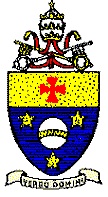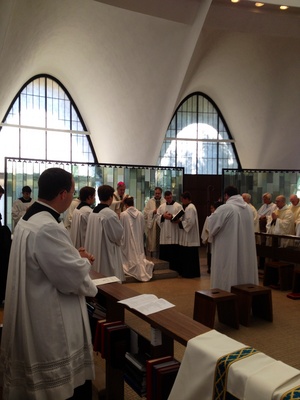In view of the swan episode that I experienced a few weeks ago St Louis Abbey with their swan walking the street, I thought you'd want to know that Abelard the Abbey swan was found dead yesterday morning by the maintenance staff of the Priory School (St Louis Abbey). My friend Father Ambrose wrote me about this event. They think he was probably killed by coyotes or maybe by a big dog.
Whether you have a liking for birds, I am sorry about this. Abelard was a beautiful animal. He was already 18 years old; in captivity, swans can live into their twenties. So he was already old by swan standards; and I think his mind was going. In fact, after I left, he wandered off several more times and had to be brought back. I think he had the swan version of Alzheimer's. Also, several of the monks think he missed Father Michael (who used to take care of him and give him bread scraps, etc.). So he was old and debilitated, and in the natural order of things, another species brought about his demise.
Now the Priory has all those odious Canada geese.
Abeland died on my friend's priestly
ordination anniversary, the feast of St. Augustine. Abelard came to live with the
monks as a gift from Father Bernard, back in 1998.
You may want to see Father Augustine's update on the Juniors at St Louis Abbey!!!




